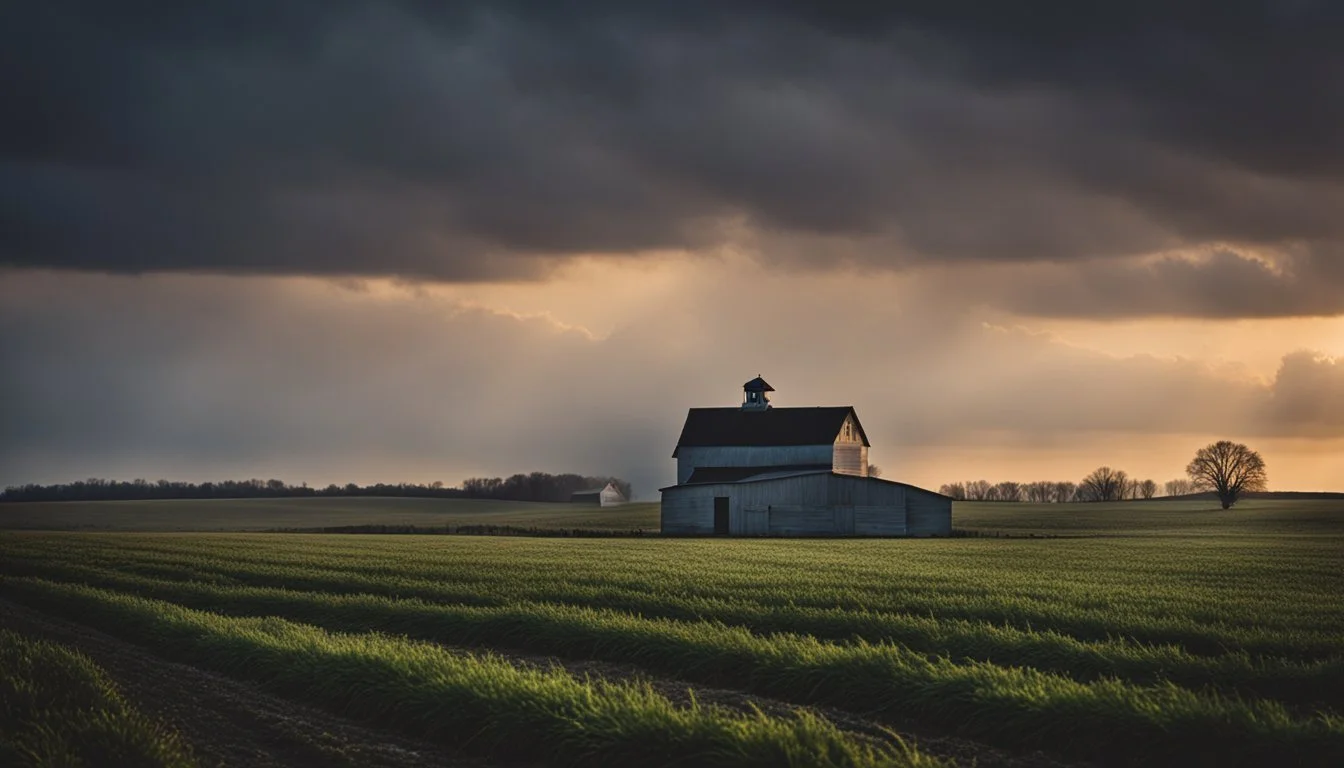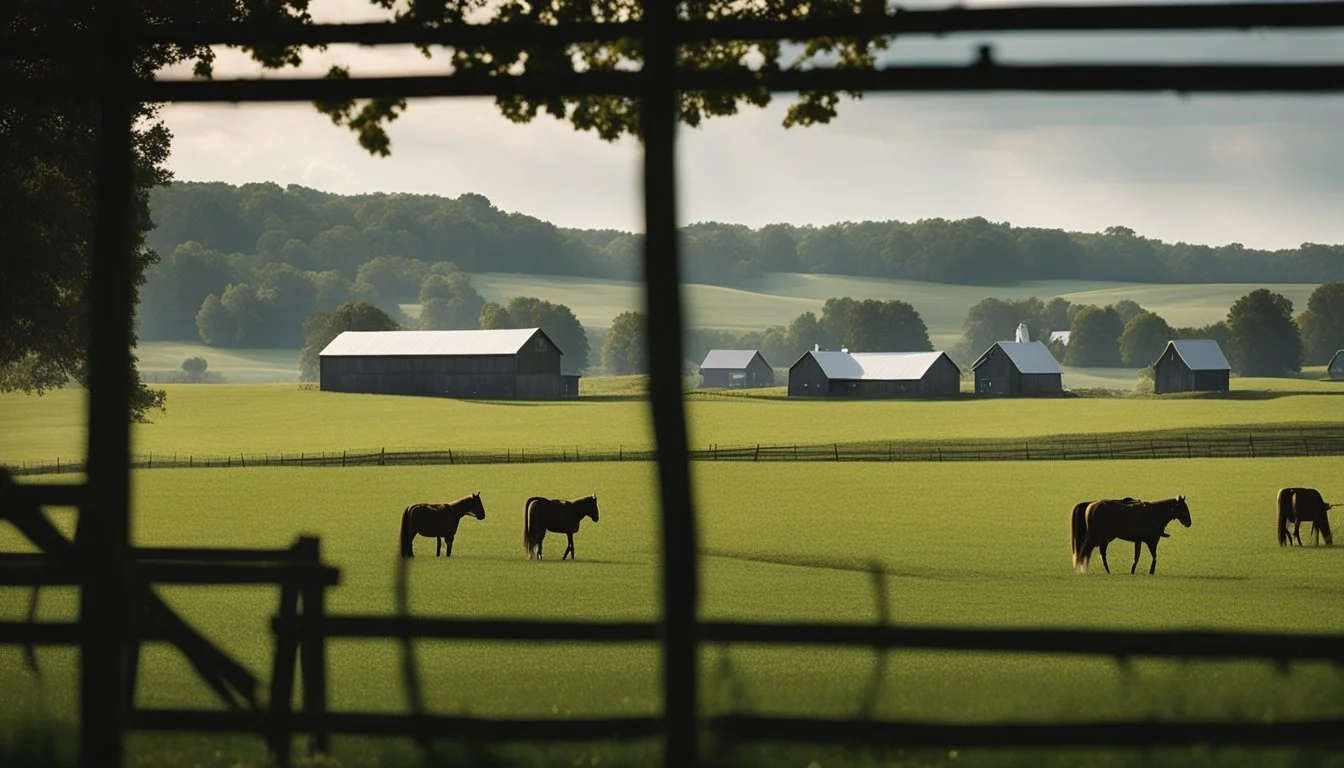5 Shocking True Crime Documentaries About Amish Communities That Will Leave You Speechless
True crime documentaries often explore hidden and insular worlds, and this is especially true when it comes to the Amish communities. These societies, characterized by their simple living and reluctance to adopt many modern technologies, have layers of complexity that make them fascinating subjects for investigative filmmakers.
One might assume that the tranquil and pious life of the Amish leaves little room for dark secrets, but these documentaries reveal startling truths. They expose the unsettling crimes that can occur even in such secluded environments, shedding light on stories that are rarely spoken about outside their tight-knit communities.
1) The Barn of Blood: The Weaver Murders (2023)
The Weaver Murders rocked the Amish community of Apple Creek, Ohio, in June 2009. Barbara Weaver, a dedicated mother and devout member of the Amish, was found dead in her home. The investigation revealed a chilling and complex web of deceit and betrayal.
Eli Weaver, Barbara’s husband, was implicated in the murder. It came to light that Eli had plotted with Barbara Raber to kill his wife, driven by illicit relationships and dissatisfaction within his marriage.
The case drew national attention due to the rarity of such violent crimes in the Amish community. Eli's trial and subsequent conviction highlighted the stark contrast between the perceived serenity of Amish life and the dark undercurrents that can run beneath the surface.
Eli Weaver was eventually convicted of complicity to commit murder and sentenced to 15 years to life. Barbara Raber, his co-conspirator, also faced justice for her role in the crime.
The documentary exposes the hidden sides of Amish life and the shocking betrayal that led to Barbara Weaver's tragic death. This film delves into the investigation and trial, providing a gripping look at the events that unfolded.
More Information: IMDB
2) Silence in the Fields: The Yoder Tragedy
"Silence in the Fields: The Yoder Tragedy" (2022) delves into a haunting incident within an Amish community. The documentary examines the brutal murder of the Yoder family in Lancaster County, Pennsylvania.
The Yoder family, known for their quiet, devout lifestyle, was found dead in their farmhouse in 2019. The crime sent shockwaves through the tight-knit Amish community, where violent crime is virtually unheard of.
The film investigates the intricate details of the police investigation, which faced numerous challenges due to the community's reluctance to cooperate with outside authorities. Family members and community leaders are interviewed, providing a rare glimpse into their world.
Insights from experts on Amish culture pepper the documentary, highlighting the challenges faced by law enforcement in such scenarios. "Silence in the Fields" offers a compelling portrayal of the intersection between modern crime-solving techniques and the insular nature of Amish life.
For more information on the film, viewers can visit the IMDB page.
3) Under the Plain Veil: The Stoltzfus Case
This documentary delves into the troubling events surrounding the Stoltzfus family, a prominent Amish family entangled in a web of abuse and murder. The case gained notoriety when Barbara Stoltzfus, a matriarch in the family, was found guilty of orchestrating multiple crimes.
The narrative explores the insular nature of Amish communities, often shielded from external scrutiny. This secrecy allowed devastating abuse to flourish unchecked. The film highlights the brave testimonies of survivors and the challenges investigators faced due to the community's closed nature.
Through interviews and re-enactments, the documentary paints a vivid picture of the Stoltzfus case. It emphasizes how the perpetrators exploited religious and cultural constraints to evade detection. Law enforcement had to navigate complex social dynamics to bring justice to the victims.
Police reports and court documents provide a stark backdrop to the personal stories shared by those affected. The filmmakers meticulously reconstruct events, merging emotional accounts with factual analysis.
This documentary sheds light on the darker aspects of Amish life, challenging the idyllic perception often held by outsiders. The Stoltzfus case serves as a cautionary tale about the dangers of unchecked power within secluded communities.
For more details on this documentary, visit the Wikipedia page on the Stoltzfus case.
4) Secrets of Amish Justice: The Fisher Chronicles
"Secrets of Amish Justice: The Fisher Chronicles" offers a deeply unsettling view into the criminal justice processes within Amish communities. This documentary shines a light on how these insular groups handle serious crimes internally, often without involving external law enforcement.
The film reveals the story of Sarah Fisher, a woman who fought against her community’s secretive handling of criminal offenses. Sarah dared to challenge long-standing traditions by seeking justice outside the Amish framework, hoping to bring an end to the cycle of concealed violence.
Interviews with former Amish members and legal experts show the complex layers of Amish culture. These elements explain why many crimes remain hidden from public scrutiny, creating an aura of mystery and inaccessibility around their ways of justice.
The Fisher Chronicles stands out for its in-depth portrayal of the struggles faced by those who push against internal community norms. It highlights the bravery required to confront systemic issues in a culture deeply averse to external interference.
The documentary serves as a stark reminder of the significant human cost when traditional values clash with modern legal standards, shedding light on a community often idealized but seldom scrutinized this rigorously.
More information: IMDb
5) Fear in Lancaster: The Miller Family Dark Past
"Fear in Lancaster: The Miller Family Dark Past" explores the unsettling history of the Miller family, whose influence within the Amish community of Lancaster, Pennsylvania, hides a troubling secret.
Centered on the disappearance of Mica Miller, the documentary unearths allegations of misconduct and deeply buried secrets.
Interviews with community members and experts reveal a tapestry of mistrust and fear.
Accounts from former associates and relatives of the Millers bring to light an environment of control and silence.
The documentary examines how these factors may have contributed to Mica Miller's unresolved case, leaving both investigators and residents with more questions than answers.
Airing in 2022, this film stands out for its candid portrayal of a close-knit community grappling with internal darkness.
With a precise narrative and eye-opening revelations, it offers a penetrating look at the lengths some will go to preserve a façade. External Link
(2022)
Overview of Amish Communities
Amish communities are known for their unique cultural and religious practices, as well as their geographic dispersion primarily in North America.
Amish Beliefs and Traditions
The Amish follow a set of religious principles rooted in Anabaptist traditions. Central to their beliefs is Gelassenheit, which emphasizes humility, submission, and simplicity.
They practice adult baptism and avoid modern conveniences, such as electricity and automobiles. Community and family life play a significant role, with most activities revolving around the home and church.
Utility is often preferred over decoration in their dress, which includes plain clothing typically made from dark fabrics. Education is usually limited to the eighth grade, adhered to in small, one-room schoolhouses. Amish worship services are held in homes rather than churches and include readings from the Bible, hymns, and lengthy sermons delivered in a dialect of German known as Pennsylvania Dutch.
Geographic Distribution
The largest Amish populations are found in the United States, particularly in Pennsylvania, Ohio, and Indiana. These states host a variety of settlements ranging from small, isolated communities to larger, more interconnected ones.
The Amish are also present in smaller numbers in states such as Wisconsin, New York, and Missouri. Canada hosts some Amish communities, primarily in Ontario.
Migration patterns often follow the search for affordable farmland and changes in zoning laws, resulting in new communities being established over time. While the majority stay within traditional areas, some Amish families have moved to other regions to preserve their way of life amid growing land costs and external influences.
Themes in True Crime Documentaries
True crime documentaries often explore deep societal issues, ranging from the intricacies of cultural conflicts to the psychological impacts of living in isolation. These themes are crucial in understanding the complexities and nuances of criminal behavior within unique communities.
Exploring Cultural Conflicts
True crime documentaries frequently focus on cultural conflicts to shed light on how differing values and norms can lead to crime. The clash between traditional and modern values is a recurring theme.
In Amish communities, the desire to maintain a simple, humble lifestyle sometimes breeds friction with the outside world. This can force individuals into illegal acts to reconcile their beliefs with modern influences.
These conflicts reveal the nuances of how culture can both prevent and precipitate criminal activity, highlighting the role of cultural preservation versus integration.
Impact of Isolation
Isolation is a significant theme in true crime documentaries, particularly within insular communities like the Amish.
Physical and social isolation can result in limited access to external resources, including law enforcement and legal aid. It can breed an environment where deviant behavior goes unchecked.
The psychological effects of isolation, such as loneliness and restricted worldviews, can also contribute to an individual’s descent into crime. Documentaries often showcase how these isolated environments become breeding grounds for unlawful activities due to a lack of external scrutiny.
Role of Law Enforcement
The interaction between law enforcement and community members is another critical theme. In tight-knit communities, there's often a deep-seated mistrust of external authorities, complicating crime investigation and prevention.
Amish communities, for instance, may prefer to handle issues internally rather than involving outsiders. This preference can hinder the efficacy of law enforcement and allow crimes to remain hidden or unreported.
Documentaries often highlight the struggles law enforcement faces in gaining the trust needed to effectively police these communities. They emphasize the importance of understanding and cooperation in overcoming these barriers.




